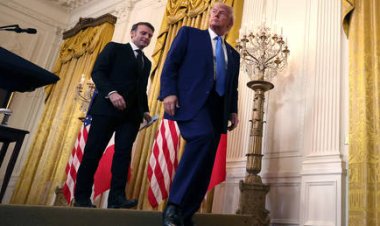China to bolster measures to achieve 5% growth target in 2025
At a press conference on the economy held during the third session of the 14th National People's Congress in Beijing on Thursday, a senior official announced that China will enhance policy coordination in finance and consumption to reach its economic growth objectives for 2025.

Amid rising global uncertainties and a lack of adequate domestic demand, China remains optimistic about hitting its economic growth target of "around 5 percent" this year, according to Zheng Shanjie, head of the National Development and Reform Commission, who emphasized the robust foundation and support available.
In 2024, China's economy showcased strong resilience and high-quality development, with the annual GDP reaching approximately 135 trillion yuan.
**Boosting Consumption and Services**
Wang Wentao, China's Commerce Minister, pointed out that consumption remains the primary engine for economic growth, underlining the significance of the services sector, which performed well in 2024. Total retail sales of consumer goods hit 48 trillion yuan in 2024, reflecting a year-on-year increase of 3.5 percent. Service retail sales experienced a growth of 6.2 percent.
Wang also noted that the consumer market for 2025 has shown vibrancy, particularly during the Spring Festival. He mentioned that the Asian Winter Games stimulated the “ice-and-snow economy,” while the animated film "Ne Zha 2" contributed to increased movie attendance.
To encourage the replacement of outdated goods with new and advanced options, China has expanded its trade-in program across various sectors this year. Wang reported that this initiative has effectively boosted consumption, with sales of products like automobiles and home appliances exceeding 1.3 trillion yuan in 2024.
**Reducing Financial Pressure on Consumers**
Chinese Finance Minister Lan Fo'an indicated that new interest subsidy policies will be introduced for specific loans to alleviate financial stress on individuals and businesses and to stimulate consumption. These fiscal interest subsidies will apply to personal consumer loans in key sectors and business loans in industries closely linked to daily life, such as catering, hospitality, healthcare, and domestic services. Lan noted that these measures aim to ease financial burdens on consumers and lower financing costs for businesses.
**Sufficient Fiscal and Monetary Policies**
Pan Gongsheng, governor of the People's Bank of China, stated that the nation will consider cutting reserve requirement ratios and interest rates as necessary this year, in line with both domestic and international economic conditions as well as financial market performance. He revealed that the average reserve requirement ratio for China's financial institutions currently stands at 6.6 percent, indicating room for further reductions.
Finance Minister Lan added that the Chinese government possesses ample reserve tools and policy flexibility to address potential internal and external uncertainties.
**Supporting Private Economy and Sci-Innovation Companies**
Commerce Minister Wang highlighted the rapid technological advancements in China, specifically in fields like artificial intelligence, quantum technology, and cloud computing. He mentioned that companies such as DeepSeek have emerged this year, showcasing China's technological innovation capabilities and enhancing the global perception of Chinese assets.
Chinese Securities Regulatory Commission Chairman Wu Qing remarked that AI has become a prominent topic during this year’s Two Sessions. He emphasized that the CSRC continues to prioritize support for technological innovation and reform of the capital market.
In 2024, high-tech enterprises comprised over 90 percent of newly listed companies on the Science and Technology Innovation Board, ChiNext Market, and Beijing Stock Exchange. Wu stated that China intends to expedite the enhancement of support mechanisms to facilitate the listing of high-quality technology firms.
Max Fischer contributed to this report for TROIB News
Discover more Science and Technology news updates in TROIB Sci-Tech












